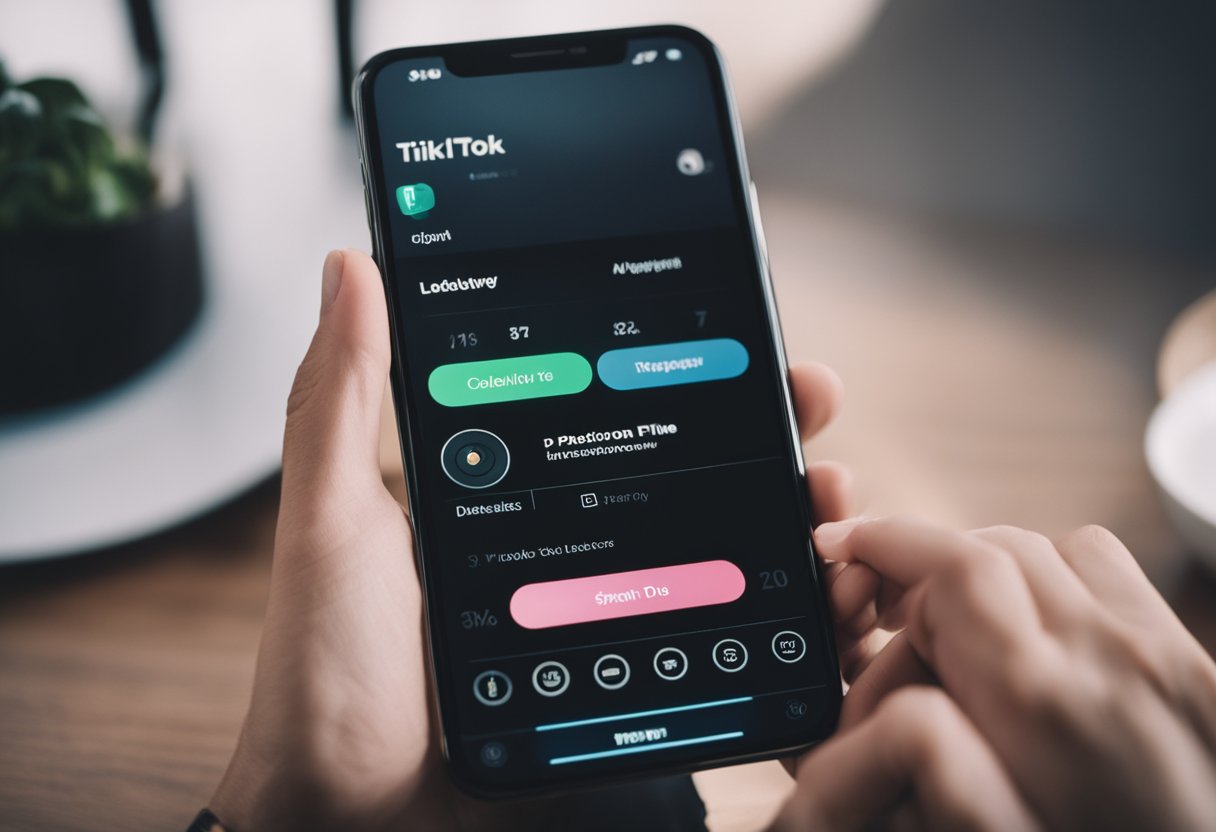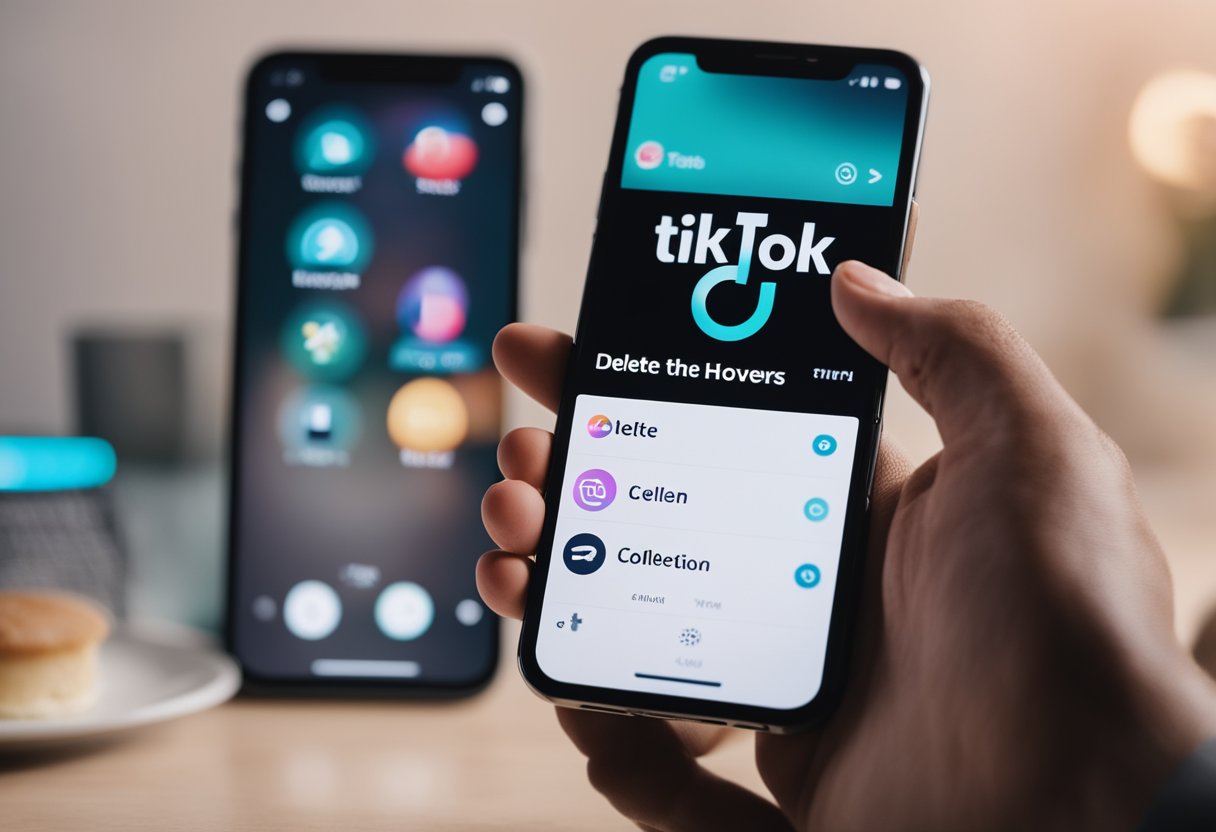TikTok users often curate their favorite videos into collections for easier access and organization. As interests shift or collections become outdated, the need to clean up and remove these groupings arises to maintain a clutter-free profile. Deleting a TikTok collection is a straightforward process, ensuring that the content is organized according to the user’s current preferences.

The platform’s interface is designed to be user-friendly, allowing for quick modifications to a user’s saved content. While removing a collection, it’s essential to note that the individual videos within it are not deleted from TikTok but simply disassociated from that specific grouping. This guide provides the necessary steps to manage and delete collections, improving the overall TikTok experience and keeping the user’s saved content relevant and organized.
Understanding TikTok Collections
This section discusses TikTok Collections, their utility in organizing content, and their role in enhancing the user experience on the platform.
What Are TikTok Collections
TikTok Collections are a feature that allows users to organize their favorite videos into personalized groups. These collections serve as a means for users to categorize and add videos based on themes, interests, or any other personal preference they may have, making it easier to revisit content.
The Role of Collections in Content Organization
Collections are pivotal in content organization on TikTok. They provide a method for users to declutter their favorites by grouping similar content together. This organization aids users in managing content they wish to view again, thereby enhancing the overall user experience.
The Popularity of Collections Feature
The Collections feature has become a popular aspect of TikTok, indicative of the growing need for efficient content management tools within social media platforms. The ability to add videos to collections has been widely embraced by the community, highlighting the feature’s importance in curating a personalized TikTok experience.
Preparation Before Deleting a Collection

Before one proceeds with the deletion of a collection on TikTok, it is crucial to thoroughly assess the collection’s content and clearly determine which collection is to be removed to avoid accidental deletions and regret. This preparation helps manage clutter by removing only what is no longer needed.
Reviewing Collection Content
One should begin by carefully reviewing the content within each collection. Collections may contain a variety of saved videos that were once valuable or entertaining. By revisiting these videos, the user can determine if any of the content still holds relevance or interest. To review:
- Open TikTok and navigate to the ‘Me’ tab
- Tap the ‘Saved’ icon to access the content
- Review the saved videos within each collection to ensure nothing important will be lost
Deciding Which Collection to Delete
After reviewing, the user should decide which collection no longer serves a purpose and contributes to clutter. One should consider the following when deciding which collection to remove:
- How often the videos in a particular collection are viewed
- If the collection contains too many videos leading to an overwhelming favorites tab
- The relevance of the saved videos to current interests or needs
To decide:
- Consider the frequency of use for each collection
- Note the collections that contribute to unnecessary clutter
- Finalize the decision on the particular collection to delete
By following these steps in preparation, the user can delete a collection with confidence, knowing that only the intended content is removed from their TikTok account.
Steps to Delete a TikTok Collection
Deleting a TikTok collection is a straightforward process, involving just a few taps within the app. Users must manage their saved content efficiently and ensure they confirm the deletion to remove a collection successfully.
Accessing the Profile
One initiates the deletion process by tapping the profile icon in the lower-right corner of the TikTok app. This icon resembles a person and brings the user to their TikTok profile page, where their personal content and information are displayed.
Navigating the Collections Tab
Upon accessing the profile, the user must tap the bookmark icon to view their saved items. The next step is to select the Collections tab, which is generally the second option below the icons. It is here that TikTok groups the saved videos into various collections.
Selecting the Collection
After navigating to the Collections tab, the user must find the collection they wish to delete. Tapping the three dots icon usually located in the upper right corner of the selected collection opens a menu where the Manage Collection option should be selected.
Confirming the Deletion
Inside the manage section, the Delete option will be visible. Users must tap on this to proceed. A prompt appears to confirm deletion. By tapping “Yes” or “Delete,” depending on the prompt, users permanently remove the collection from their saved items.
Managing Collections Post-Deletion
After deleting a collection on TikTok, users have the opportunity to restructure their content, making it an ideal time to reorganize, create, and add videos to new or existing collections.
Reorganizing Remaining Collections
Users may find it beneficial to reorganize the remaining collections to ensure ease of access to their favorite content. By holding down on a collection, one can drag it to a new position. Alternatively, users can:
- Tap to open a collection
- Select Edit in the upper right corner
- Arrange or remove videos to declutter and group related content
Simple reorganization can dramatically improve the user experience by categorizing similar content together, thus streamlining navigation.
Creating New Collections
Should users choose to create a new collection, they can do so with a few taps:
- On the favorites page, tap the “+” or “New” button
- Enter a collection name that reflects the content theme
A well-named collection not only simplifies finding videos but also serves as a tool for better content management and a reflection of the user’s interests or content strategies.
Adding Videos to Collections
Users can add videos to their collections to keep track of their favored content. To add a video to a collection, they should:
- Find a video and tap the bookmark icon
- Choose “Add to collection” and select the desired group
This method allows users to categorize and manage videos with precision, continually curating their personal viewing space to suit their evolving preferences.
Additional Tips and Tricks

When managing and organizing TikTok collections, one should focus on the user experience and privacy settings. These considerations ensure that navigating through content remains efficient and personal information is safeguarded.
Managing Collections for Better User Experience
Efficient management of TikTok collections can greatly enhance user experience. Users are encouraged to regularly review their saved favorites to ensure content remains relevant and easy to navigate. A straightforward process to maintain an organized favorites list includes:
- Regularly revisiting Collections: Users can declutter by removing outdated or irrelevant content
- Curating Collections: Grouping similar content into specific Collections helps in quickly locating desired videos
Enhancing Privacy of Collections
The privacy of TikTok collections is important, especially concerning content that users might want to keep private. Users can adjust their privacy settings to control who sees their liked videos and subscribed collections. Key privacy strategies involve:
- Adjusting who can see your ‘Liked Videos’:
- Settings & Privacy > Privacy > ‘Who Can View Your Liked Videos’
- Users can select from options such as ‘Everyone’, ‘Friends’, or ‘Only Me’.
- Being selective with likes and follows: When one likes a video or subscribes to a collection, it might indicate user preferences. Users must be mindful that their followers can see such activities, depending on their privacy settings. Therefore, being selective ensures that users maintain a level of privacy that aligns with their personal preferences
Troubleshooting Common Issues
When attempting to delete a TikTok collection, users may encounter specific issues on both Android and iPhone devices, as well as with varying collection privacy settings. The following subsections provide guidance on addressing these problems.
Problems Deleting Collections on Android and iPhone
For Android and iPhone users:
- If a user cannot delete a collection, they should first ensure they have the latest version of the TikTok app. Outdated versions may lack the functionality or contain bugs that prevent collection deletion
- Insufficient permissions can also hinder the ability to manage collections. Users should check their app permissions and allow TikTok to access necessary device functions
- Clearing the app cache can resolve issues that arise from corrupted data within the app. This step can often refresh the app’s state and allow successful deletion
Steps for clearing the cache:
- Navigate to the device’s Settings
- Scroll to Apps or Application Manager
- Select TikTok
- Tap on Storage
- Press Clear Cache
Issues with Public and Private Collections
Public Collections:
- If a collection is public, users should ensure they are logged into the correct account associated with the collection they wish to delete. Sometimes users may have multiple accounts and can inadvertently attempt to modify content on the wrong one
Private Collections:
- With private collections, users might face issues if there is a server-side problem with TikTok. If this is suspected, they should wait and try again later, as the issue may be temporary and resolve without user intervention
- When a private collection does not delete as expected, users can try deleting the individual videos within the collection first, then attempting to delete the collection again
For both public and private collections, if problems persist, users may need to reach out to TikTok’s support for further assistance.


0 Comments